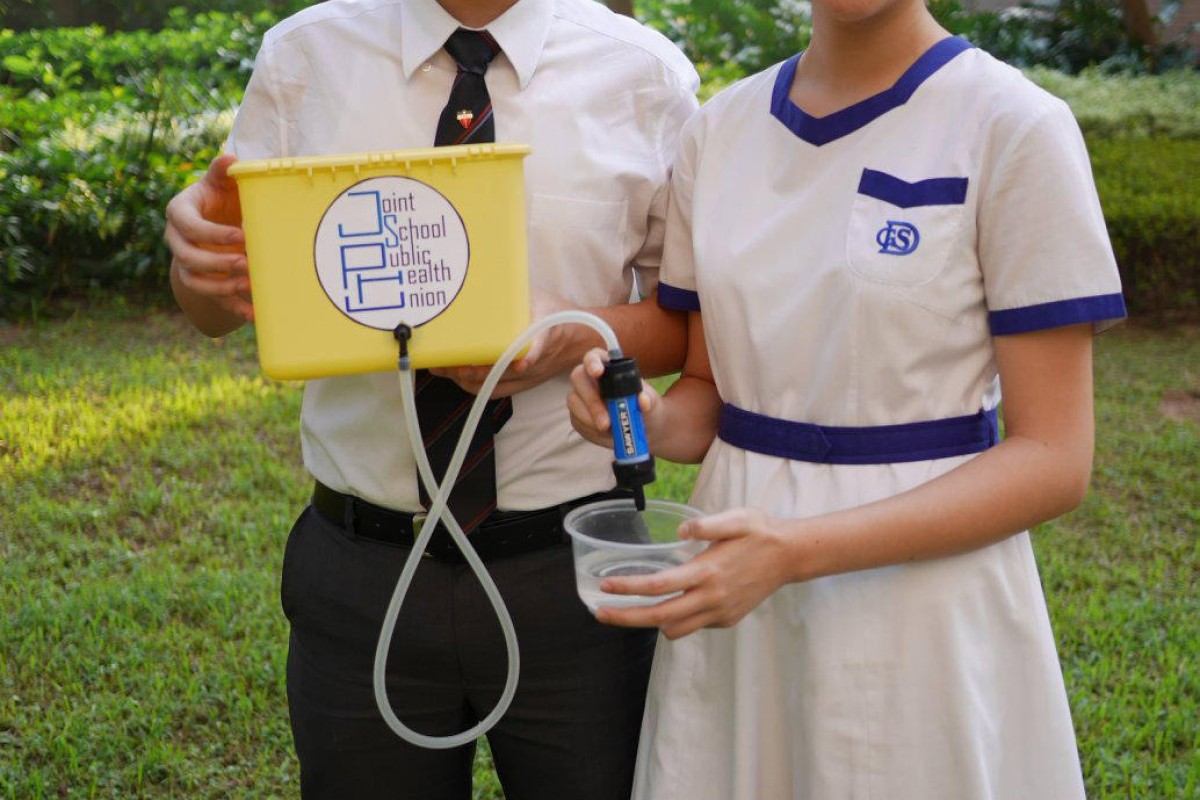
Most of us take clean drinking water for granted, but for many people across the globe, the reality is rivers or public taps with dirty, contaminated water
 Augustin (L) and Junita created a miniature water-filtration system to explain how it works
Augustin (L) and Junita created a miniature water-filtration system to explain how it worksBut a clean drink doesn't come easy for slum-dwellers in South Africa. In the largest slum in Cape Town called Khayelitsha, most of its 390,000 residents have to fetch water from the public tap - some of the water is the colour of milk tea - or rivers polluted by human waste and household chemicals. Most households, which make about HK$2,200 monthly, cannot afford bottled water.
Having heard about the situation from a friend who works at Doctors Without Borders, three Hong Kong students raised money to buy water filtration facilities and flew to South Africa to install them in the shanty towns during their summer holiday.
The trio - consisting of 17-year-old La Salle College student Augustin Tung Ho-yin, 16-year-old Diocesan Girls' School student Junita Tung Ka-yan, and Kenneth Wong, 17, who studies in Australia - heads the Joint School Public Health Union. The association was founded in 2010 to encourage students to join the health care industry.
During their week at Khayelitsha, the students, who were accompanied by two doctors and a nurse, were saddened by poor hygiene in the slums. In most areas, the only facilities provided by the government are toilets, with water taps outside.
"When we arrived, we were upset to see people living in shacks made of sheet metal and flies everywhere," says Junita. "People suffer from cholera and diarrhoea drinking contaminated water. It's heartbreaking to know the most easily affected are children with poor immune systems."
Residents were happy when the students said they wanted to set up 10 water-filtration tanks at Khayelitsha. The tanks, from the US, cost HK$150 each. The original price was HK$400 but the students received a discount after they told the manufacturer about their charity project.
The funds to buy the filters were donated by their union's advisers and a family friend. Augustin says the filters use hollow fibre membrane technology which can remove 99.9 per cent of bacteria such as salmonella, cholera and E. coli. "Our resources are limited but we hope to keep as many residents as possible safe from water-borne illnesses," he adds.
The trio taught the residents how the system works and what to do when the filter fails. Unlike traditional systems that use carbon, cotton wool or gravel, the filters at Khayelitsha are low-maintenance and have a long lifespan.
Augustin says: "If the filters become over-saturated, residents don't need to replace them - we know that this option might not be affordable. All users need to do is pump water backwards and any dirt will clear out and it will work as if it's new."
The students hope to return with more water filters next summer.